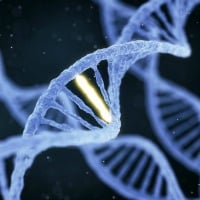The typical night owl attributes his preference for a nocturnal existence to his interests. Others claim to dislike the sun. Some say they derive a particular sense of satisfaction from being awake when others are asleep. Scientists have pinpointed a much more practical reason for the predilection to stay up late: a gene mutation.
About the Finding
Rockefeller University researchers have determined that a variant of the CRY1 gene slows the body’s internal biological clock, commonly referred to as the “circadian clock”. This internal clock determines when one feels sleepy and when he is ready to wake. Those who have the “night owl” variation of the CRY1 gene have an extended circadian cycle compared to others. As a result, these individuals are inherently programmed to remain awake at later hours. Michael W. Young, the study’s senior author, states that the genetic change is quite impactful compared to other mutations that have been tied to sleep disorders. New research indicates the gene mutation could be present in upwards of 1 in 75 individuals.
The Diagnosis of Night Owls
According to the Centers for Disease Control and Prevention, somewhere between 50 million and 70 million adults in the United States suffer from a sleep/wakefulness disorder. The conditions range from narcolepsy to insomnia. Such conditions predispose individuals to chronic diseases like depression, diabetes, and obesity.
Those who claim to be night owls are commonly diagnosed with delayed sleep phase disorder (DSPD). The 24-hour sleep and wake cycle of such individuals is delayed, making them feel much more energetic long beyond when the typical person has settled into bed for a restful night of sleep. Yet heading to the sack long after everyone else has some negatives. Those with DSPD must wake to head to work, school or elsewhere before the body is ready. The result is insomnia in the early portion of the night as well as fatigue throughout the day.
Study Details
Young worked with research associate Alina Patke to find out if mutations in known circadian genes are tied to DSPD. The pair of sleep experts teamed up with sleep researchers from Weill Cornell Medical College. Study participants spent two weeks in a lab apartment that was completely isolated from outdoor stimuli that indicate the time of day. The subjects were allowed to eat and sleep as desired.
The majority of individuals adhere to a 24-hour sleep and wake cycle when placed in this style of “free run” living space. Yet a DSPD sufferer stood out from the pack. This participant stayed up late at night and had a cycle that was around half an hour longer. The research team also found that alterations in body temperature and hormones that cycle with the circadian clock were delayed. An example of such a hormone is melatonin. This hormone helps to regulate sleep. Its levels began to increase at 9/10 PM for most of the study participants. Yet the DSPD patient’s melatonin levels did not rise until three in the morning.
The research team studied the DSPD patient’s DNA and found that single variant of note: a mutation of the CRY1 gene. The protein created by CRY1 is typically responsible for suppressing some of the genes turned on and off across a 24-hour cycle. The mutation pinpointed in the DSPD patient spurred the CRY1 protein to be more active than normal, forcing other clock genes to be turned off for an extended period of time. As time progresses, drugs might be created to help DSPD patients. In the meantime, DSPD patients will have to proactively control their sleep cycles with strict rest schedules.




